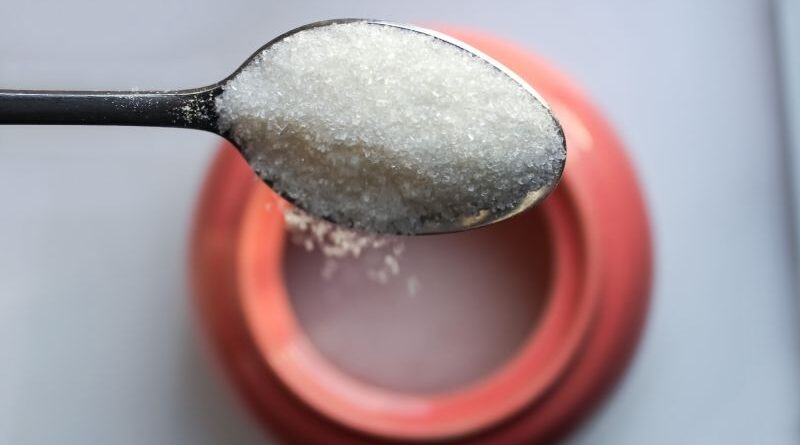Sugar in first 1,000 days after conception linked to health issues later in life, study says | CNN
CNN
–
The holiday season is upon us and it’s easy for a child’s sweet tooth to kick in. However, new research suggests that it may be beneficial to limit how much sugar young children eat.
A study published Friday in the journal Science found that reducing blood sugar in the first 1,000 days after conception — for up to 2 years — can reduce a child’s risk of chronic diseases. elder.
Researchers found that reducing sugar consumption in this window reduced the risk of type 2 diabetes by about 35% and the risk of high blood pressure by about 20%. They also found a delay in disease onset of four and two years, respectively.
The research team looked at data before and after the end of World War II in the United Kingdom in September 1953.
In January 1940, the UK began issuing a measure to allow a “fair share” of food for the country during wartime shortages, according to the Imperial War Museums. Access to foods such as sugar, fat, bacon, meat and cheese was limited.
When the sugar and sweets ratio ended in September 1953, the daily sugar consumption of adults in the UK almost doubled almost immediately, from 40 to 80 grams.
The researchers looked at health data from the UK Biobank, a large biomedical database and research resource that follows people over a long period of time, on around 60,183 participants born between October 1951 and March 1956, before and after the end of the distribution, to get the results. of such a large increase in sugar consumption.
Tadeja Gracner, the lead author of the study and a senior economist at the Center for Economic and Social Research at the University of Southern California, says: “The sugar ratio has made an interesting natural analysis.”
A six-year follow-up showed a 30% reduction in the risk of obesity for babies conceived or born during the diet, with a rapid increase in type 2 diabetes and high blood pressure in they are after the sugary food is gone.
The study also found that reducing the use of sugar in the womb and childhood can reduce the “lifetime preference” for sweets, and with the amount of the womb alone that makes about a third of the risk reduction.
“We are wired to love good things from birth,” said Dr. Mark Corkins, director of the department of pediatric gastroenterology and professor of pediatrics at the University of Tennessee Health Science Center, who was not involved in the new research.
He said that for centuries, people turned to fruit to satisfy their sweet cravings while getting vitamins and minerals along the way. Now, sugar is so refined and concentrated that many people prefer a piece of chocolate cake to a peach, he said. These high levels of abuse take a toll on our bodies.
“When you consume a lot of sugar, it changes the way your metabolism works, and you start storing it and storing it,” Corkins said. “We are designed to store food for times of famine. We no longer have periods of hunger, now we store them as fat.”
The amount of sugar consumed in the US is “very high,” he said.
According to the federal Dietary Guidelines for Americans 2020-25, anyone age two or older should limit their daily intake of added sugars to less than 10% of their total calories. Following these guidelines can be difficult, Gracner said.
“Added sugar is everywhere, even in baby and toddler foods, and kids are bombarded with TV ads for sugary snacks,” Gracner said. “While improving nutrition knowledge among parents and caregivers is important, we also need to hold companies accountable for changing children’s diets in healthy ways and controlling food sales and prices. sweets aimed at children.”
Researchers say in a new study, pregnant and lactating women eat more than three times the recommended amount of added sugar, on average, more than 80 grams per day.
The US Centers for Disease Control and Prevention also warns that many children ages 1 to 5 don’t get enough fruits and vegetables every day, but they still drink sugary drinks.
Get CNN Health’s weekly newsletter
Corkins says one way parents can reduce sugar consumption in young children is to change their habits.
He said: “The first influence is the parents. They see what their parents eat, and children tend to eat like their parents. If you want your child to have good manners , you should imitate those habits.”
Other ways to reduce sugar consumption include replacing sugary drinks with healthy alternatives or cutting them out altogether, and avoiding sugar-free meals and sugary drinks at home, where they may be more attractive. The important thing is to practice moderation when eating sugary foods.
“We all want to improve our health and give our children the best start in life, and cutting back on added sugar quickly is a powerful step in that direction,” Gracner said. “With better information, the right environment and incentives, parents can easily reduce sugar exposure for children and themselves.”
#Sugar #days #conception #linked #health #issues #life #study #CNN
